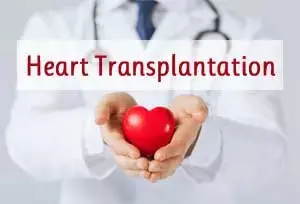- Home
- Medical news & Guidelines
- Anesthesiology
- Cardiology and CTVS
- Critical Care
- Dentistry
- Dermatology
- Diabetes and Endocrinology
- ENT
- Gastroenterology
- Medicine
- Nephrology
- Neurology
- Obstretics-Gynaecology
- Oncology
- Ophthalmology
- Orthopaedics
- Pediatrics-Neonatology
- Psychiatry
- Pulmonology
- Radiology
- Surgery
- Urology
- Laboratory Medicine
- Diet
- Nursing
- Paramedical
- Physiotherapy
- Health news
- Fact Check
- Bone Health Fact Check
- Brain Health Fact Check
- Cancer Related Fact Check
- Child Care Fact Check
- Dental and oral health fact check
- Diabetes and metabolic health fact check
- Diet and Nutrition Fact Check
- Eye and ENT Care Fact Check
- Fitness fact check
- Gut health fact check
- Heart health fact check
- Kidney health fact check
- Medical education fact check
- Men's health fact check
- Respiratory fact check
- Skin and hair care fact check
- Vaccine and Immunization fact check
- Women's health fact check
- AYUSH
- State News
- Andaman and Nicobar Islands
- Andhra Pradesh
- Arunachal Pradesh
- Assam
- Bihar
- Chandigarh
- Chattisgarh
- Dadra and Nagar Haveli
- Daman and Diu
- Delhi
- Goa
- Gujarat
- Haryana
- Himachal Pradesh
- Jammu & Kashmir
- Jharkhand
- Karnataka
- Kerala
- Ladakh
- Lakshadweep
- Madhya Pradesh
- Maharashtra
- Manipur
- Meghalaya
- Mizoram
- Nagaland
- Odisha
- Puducherry
- Punjab
- Rajasthan
- Sikkim
- Tamil Nadu
- Telangana
- Tripura
- Uttar Pradesh
- Uttrakhand
- West Bengal
- Medical Education
- Industry
Heart transplantation: Donation after circulatory death feasible, study suggests

USA: In a major finding, researchers have reported that heart donation for transplantation after circulatory death has similar outcomes to heart donation after brain death. The outcomes were similar at 30 days and 6 months suggesting a potential for a substantial increase in adult heart transplantation (HT) volumes with the use of donation after circulatory death (DCD) donors. The study appears in the Journal of the American College of Cardiology (JACC).
There are an increased persistence of shortage of donation after brain death (DBD) donors for heart transplantation. Recently, interest in DCD-HT has been renewed owing to improvements in organ procurement from donation after DCD donors and promising early results of DCD-HTs from Europe and Australia.
Against the above backdrop, Shivank Madan, Division of Cardiology, Montefiore Medical Center and Albert Einstein College of Medicine, Bronx, New York, USA, and colleagues aimed to evaluate donor and recipient characteristics, early outcomes, and potential impact of adult DCD-HT in the United States.
The researchers used the United Network for Organ Sharing registry to identify and compare adult DCD donors based on their use for HT between January 2020 and February 2021. Adult DCD-HTs with available post-HT outcomes data were compared with contemporary adult DBD-HTs during study period using Cox-regression analysis and propensity-matching.
Following were the study's key findings:
- Of the 3,611 adult DCD donors referred during the study period, 136 were used for HT. DCD donors used for HT were younger (median age 29 years), and most were male (90%), and blood type O (79%).
- On comparing DCD-HT (n = 127) and DBD-HT (n = 2,961) meeting study criteria and with available data on post-HT outcomes, there was no significant difference in 30-day or 6-month mortality, primary graft failure up to 30 days, or other outcomes including in-hospital stroke, pacemaker insertion, hemodialysis, and post-HT length of hospital stay.
- Results were similar in propensity matched DCD-HT and DBD-HT cohorts.
- The number of potential adult DCD donors referred has increased substantially (n = 871 in 2010 to n = 3,045 in 2020), and the authors estimated that widespread adoption of DCD-HT could lead to approximately 300 additional adult HTs in the United States annually.
"The preliminary analysis of adult DCD-HTs from the United States showed favorable early outcomes and suggested a potential for substantial increase in adult HT volumes with use of DCD donors," the authors wrote.
Reference:
The study titled, "Feasibility and Potential Impact of Heart Transplantation From Adult Donors After Circulatory Death," was published in the Journal of the American College of Cardiology (JACC).
DOI: https://www.jacc.org/doi/abs/10.1016/j.jacc.2021.10.042
Dr Kamal Kant Kohli-MBBS, DTCD- a chest specialist with more than 30 years of practice and a flair for writing clinical articles, Dr Kamal Kant Kohli joined Medical Dialogues as a Chief Editor of Medical News. Besides writing articles, as an editor, he proofreads and verifies all the medical content published on Medical Dialogues including those coming from journals, studies,medical conferences,guidelines etc. Email: drkohli@medicaldialogues.in. Contact no. 011-43720751


